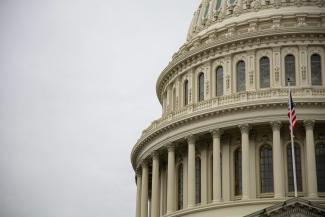
Investing During an Election Year
Presidential elections can be divisive and unsettling, but when it comes to investing, do elections really matter? American Funds has analyzed over 90 years of investment data during the last 23 election cycles and have learned the following:
- U.S. Stocks tend to trend up no matter who wins the White House.
- Election primaries tend to be volatile, but markets bounce back strongly thereafter.
- Investors who get nervous and move to cash during election years tend to earn less that those who stay invested.
Which political party has been better for investors?
Investing during an election year can be tough on the nerves, and 2024 promises to be no different. Indeed, politics can elicit strong emotings and biases, but investors would be wise to tune out the noise and focus on the long term.
That’s because elections have, historically speaking, made essentially no difference when it comes to long-term investment returns.
What should matter more to investors is staying invested. A $1,000 investment in the S&P 500 made when Franklin D. Roosevelt took office would have been worth over $19 million as of June 30, 2023. During this time there have been eight Democrat and seven Republican presidents.
Current economic and political challenges may seem unprecedented but a look at past election cycles shows that controversy and uncertainty have surrounded every campaign. And in each case the market has continued to be resilient over time. Successful investors stay the course and rely on time in the market rather than timing the market.
Bottom Line – U.S. Stocks have trended up regardless of whether a Democrat or Republican won the White House.
What typically happens to the stock market during election years?
Markets hate uncertainty, and what’s more uncertain than primary season of an election year? The range of outcomes can feel daunting.
But the volatility is often short-lived. After the primaries are over and each party has selected its candidate, markets have tended to return to their normal upward trajectory.
Patient investors who stay the course have often been rewarded. Since 1932 stocks have gained an average of 11.3% in the 12 months following the conclusion of the primaries (using May 31 as a proxy) compared to just 5.8% in similar periods of non-election years.
Bottom Line – U.S. Stocks have trended up regardless of whether a Democrat or Republican won the White House.
These are the opinions of Retirement Strategy Group and not necessarily those of Cambridge Investment Research, are for informational purposes only, and should not be construed or acted upon as individualized investment advice. Investing involves risk. Depending on the types of investments, there may be varying degrees of risk. Investors should be prepared to bear loss, including total loss of principal."

